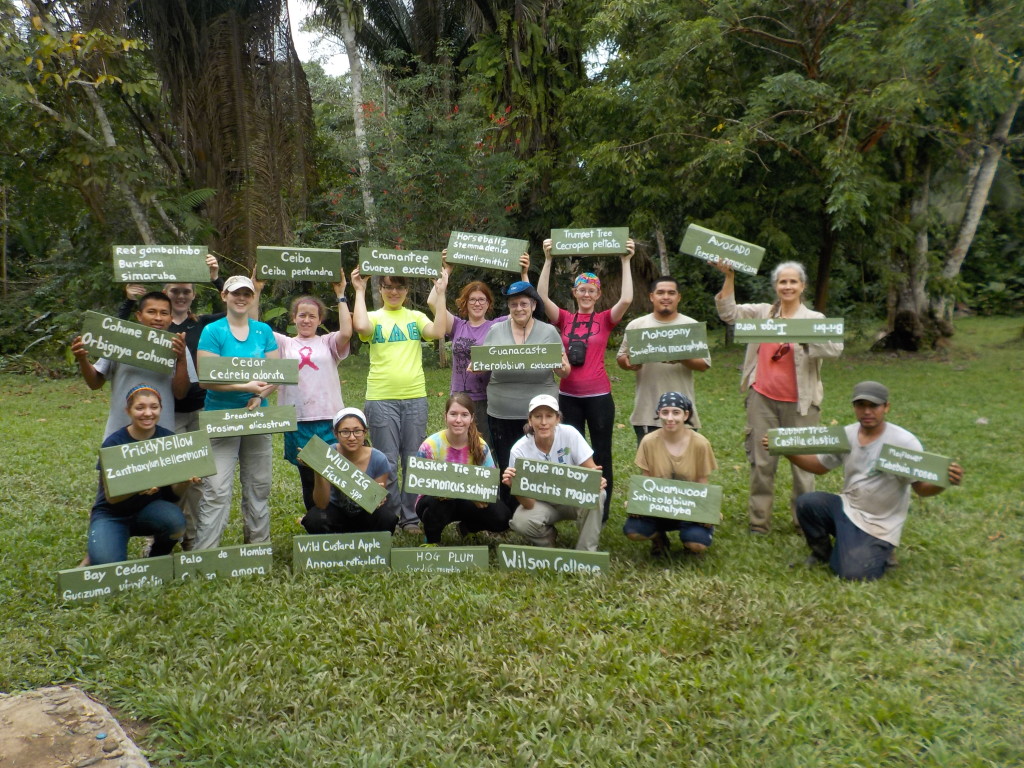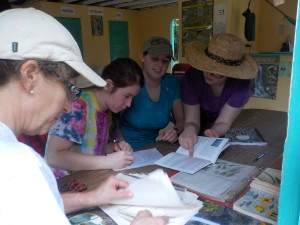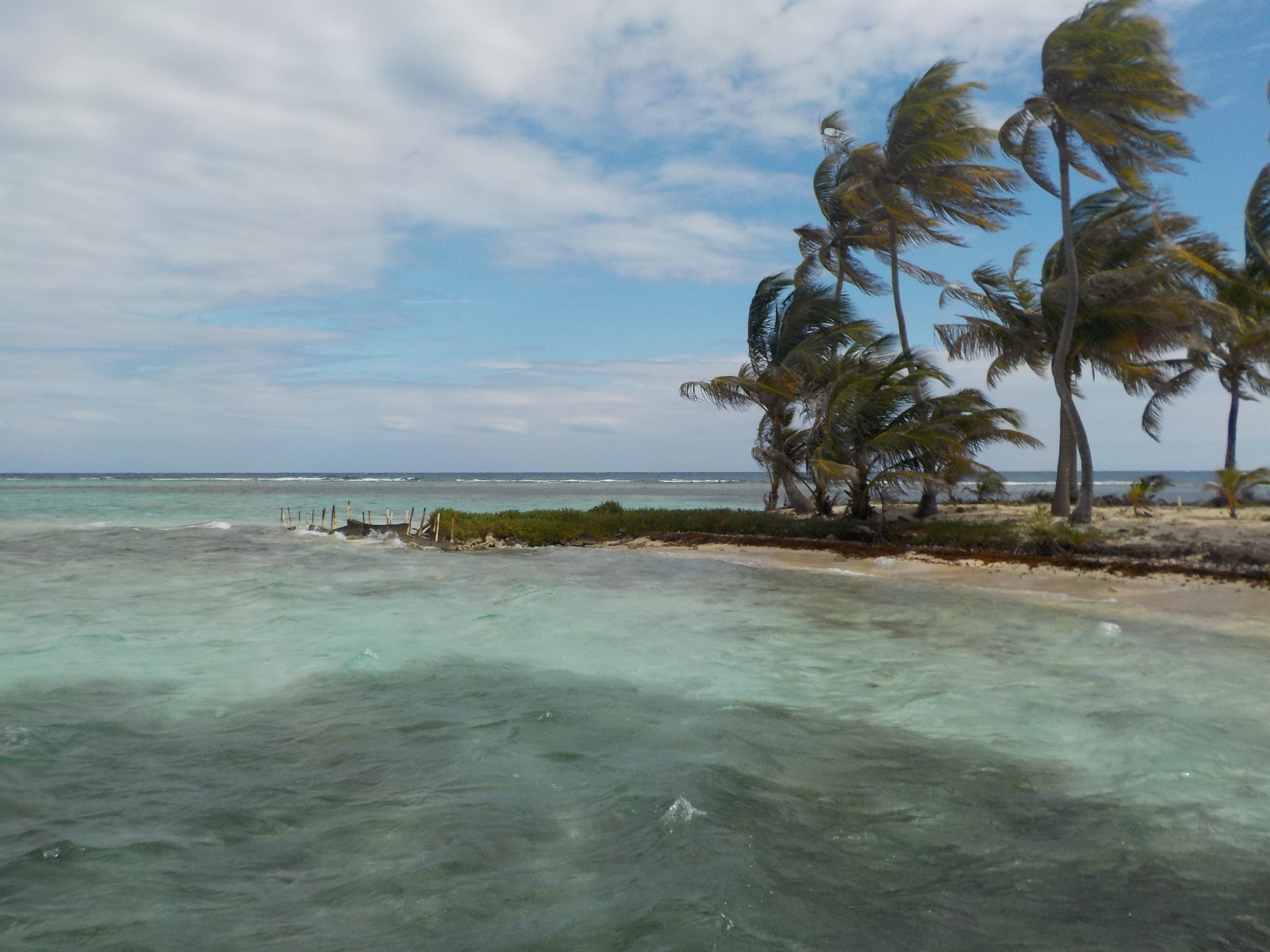Belize: When Knowledge Became Understanding

Photo provided by Jessica Meck
On Jan. 10, 2015, at approximately 2:00 a.m., eleven Wilson students along with two professors set out to spend two weeks soaking up the tropical bliss of Belize on a crash course study abroad trip. This is their story.
You may be wondering to yourself: ‘What possessed a group of college students with majors varying from VMT to Environmental Science to venture to Central America in the middle of January?’ The short answer is: Biology 270, Tropical Ecology of Belize, which is a course that is offered every other year through Wilson’s biology department that is available to all students, regardless of major or status.
Dr. Laura Altfeld, Assistant Professor of Biology, and Christine Mayer, Program Manager for the Fulton Center for Sustainable Living, originally organized the BIO 270 course. However, due to unforeseen circumstances, Altfeld was unable to join the trip. For this reason, the group got the pleasure of working with Dr. Jeannine Lessman, Assistant Professor of Marine Science and Biology at Eckerd College in Florida. Both professors brought their own unique range of knowledge to the table, allowing for a diverse learning environment.
When asked about the trip from a professor’s perspective, Mayer said, “For me, trips like this are really amazing for students because knowledge becomes understanding.”
Belize Rainforest Ecosystem CoralReefEcosystem Pine Savanna The Mayans and Caves
The course consisted of three weeks of rigorous work, including one week of lecture on campus and two weeks abroad in Belize. The mix of traditional classroom learning and hands-on experience kept every student engaged throughout the duration of the course.
From the perspective of Sonja Hess ‘15, “This class was an adventure! It was a crash course in botany mixed with the adventure of a lifetime. I never would have imagined doing some of the things we did and it was certainly a once in a lifetime experience.”
Another classmate, Jessica Meck ‘15, said, “This trip was certainly the coolest thing I have done in my life.”

Photo provided by Jessica Meck
Hands-on learning can be rewarding for all students, regardless of major and background. When asked about the overall experience, Christiana Bredbenner ’16, said, “I don’t think we could have learned as much or as thoroughly in a classroom. It was wonderful to be able to work out in the field. Belize is such a beautiful country and I would recommend going on this awesome trip!”
Every day in Belize offered a new adventure for our group, whether it involved hiking up mountains, eating termites, visiting Mayan ruins or snorkeling through coral reefs along the coast. Across the board, it seemed that the group dubbed their time spent at the Actun Tunichil Muknal cave as the most memorable activity.
Belize is one of the most culturally diverse countries in the world. For this reason, the student group was able to gain a respect for many cultures that many did not even know existed prior to the trip. Many of their guides through Island Expeditions were locals, which allowed for a great deal of cultural interaction. Through the cultural immersion students experienced while abroad, they were able to look at their own cultures with fresh perspectives.
Studying abroad in Belize was a humbling experience for the students. It allowed them to gain respect for other cultures and environments while simultaneously teaching them more about where they came from. After all, travel is about coming back just as much as it is about leaving.

